Idea by
Lion RUST, Xavier WALTER
Call for ideas 2021
Tales of Trash
Tales of Trash
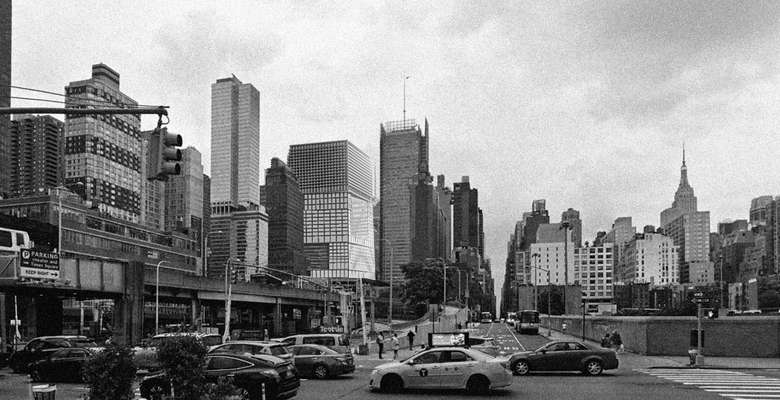
- Systemic changes
The project emits the hypothesis, that Manhattan constitutes an urban fabric, which is developed and diverse enough, that it is able to overcome and avoid the export of its waste by integrating its treatment in its proper urban fabric.
The project is developed in three entities, three buildings becoming different recycling sites deeply integrated in Manhattan’s urban fabric. The choice of three relies on the three most produced garbage types, which are the non recyclable waste, plastic waste, and paper rejects.
Each type of waste has its proper way of conveyance based on existing structures as the subway or buses in their off-peak hours, leading to a particular recycling site. Each recycling site functions as an urban hybrid, linking recycling programs to public programs in a symbiotic way. The product issued out of the recycling process is immediately consumed or redistributed onsite.
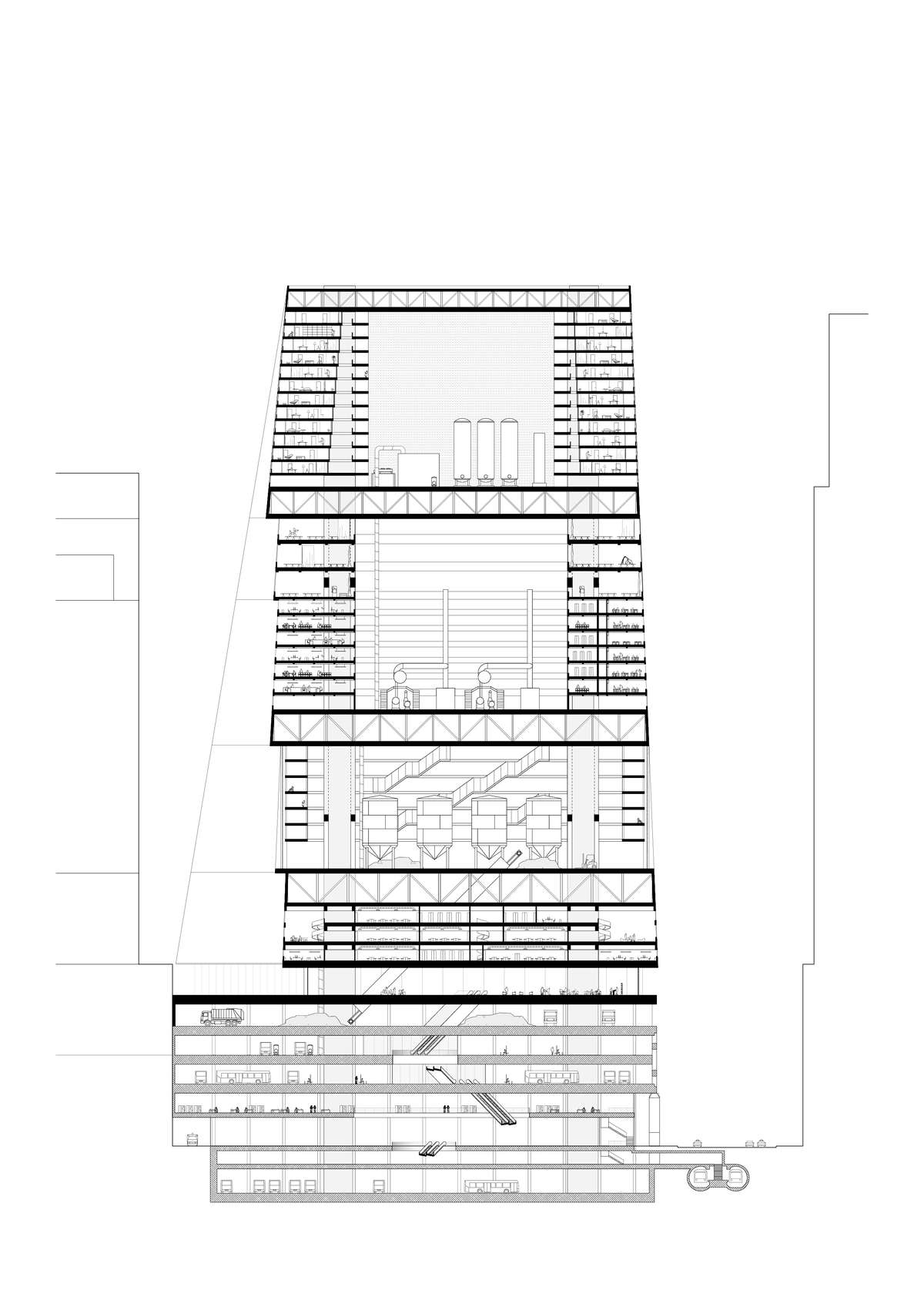
Plastic recycling plant, section
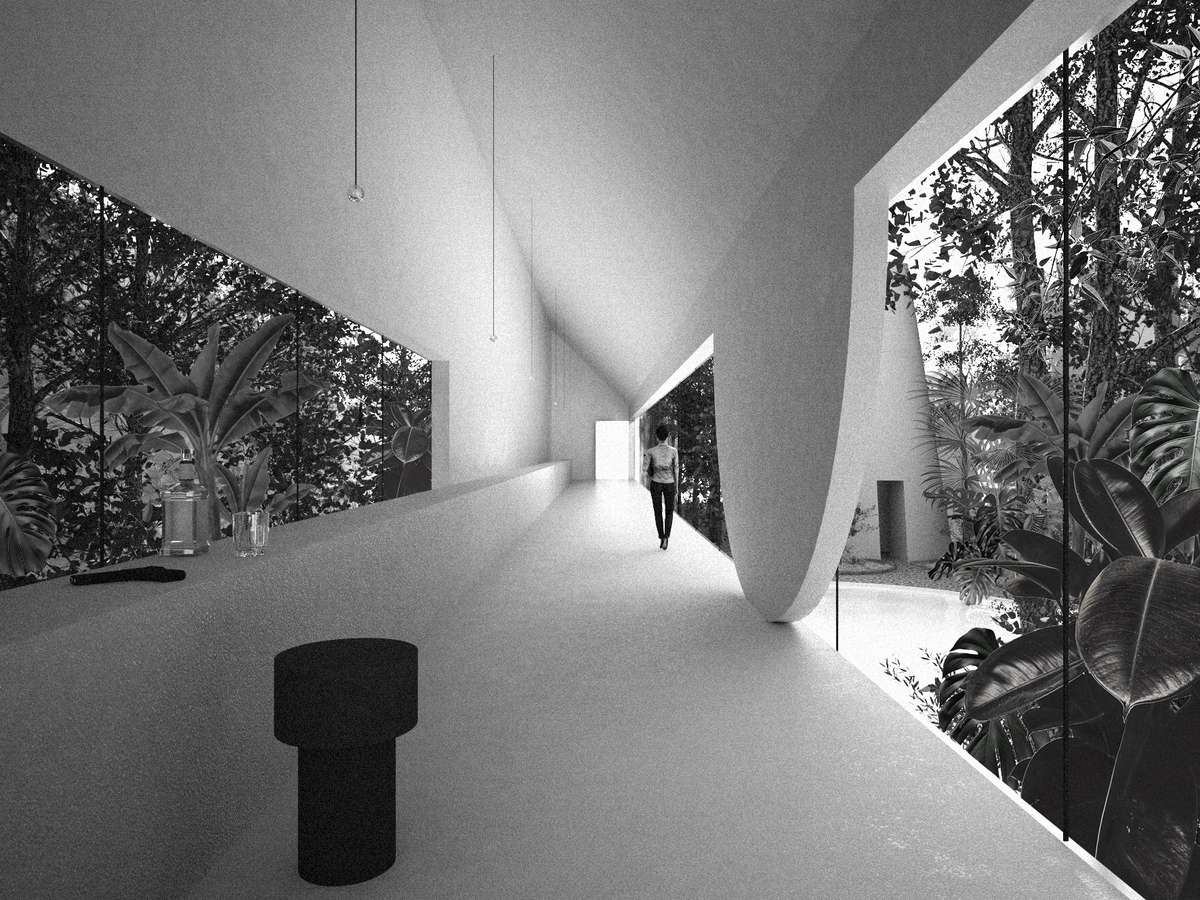
Non Recyclable waste plant, perspective of the from the machine's heat excesses warmed tropical garden
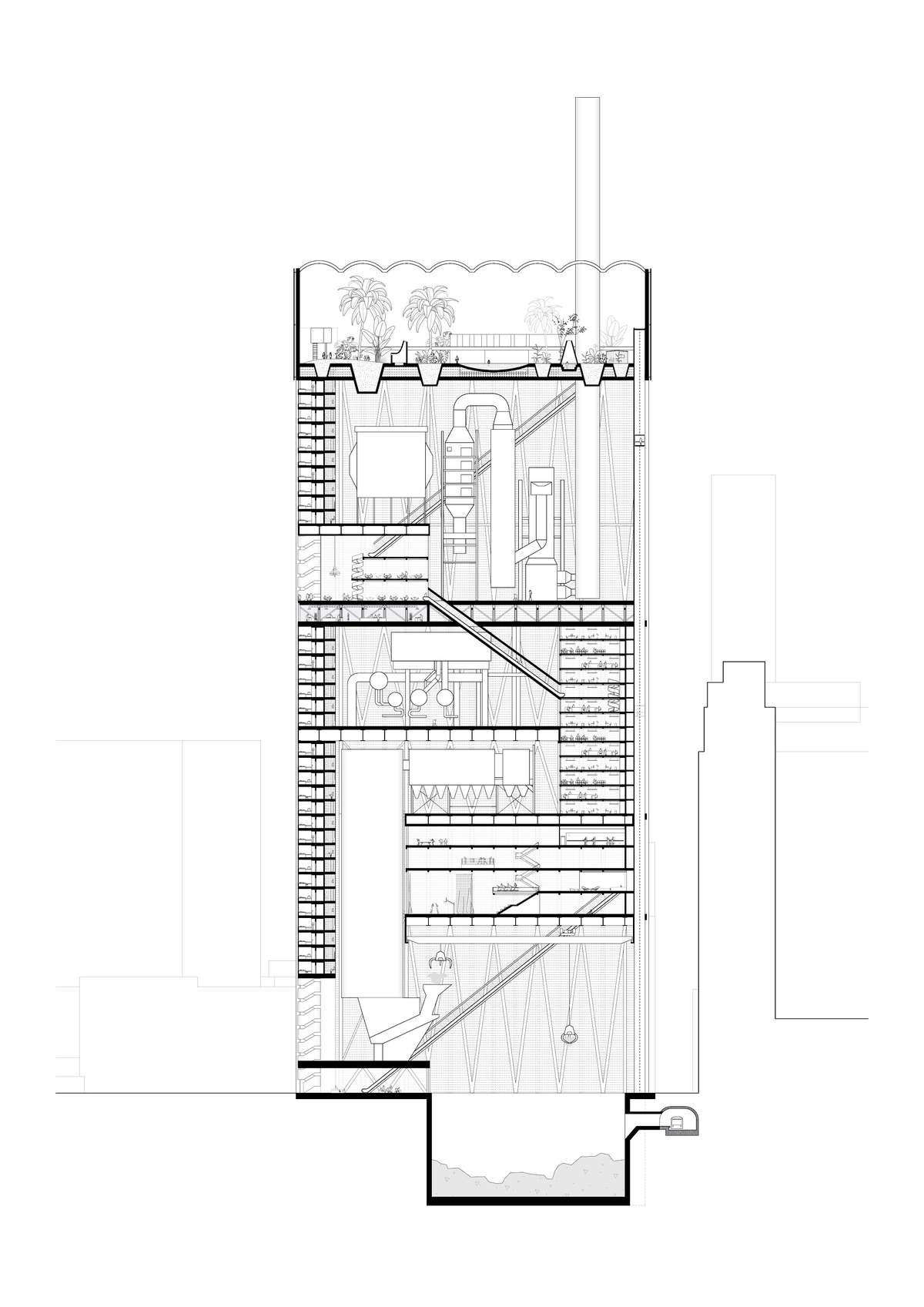
Non Recyclable waste plant, section
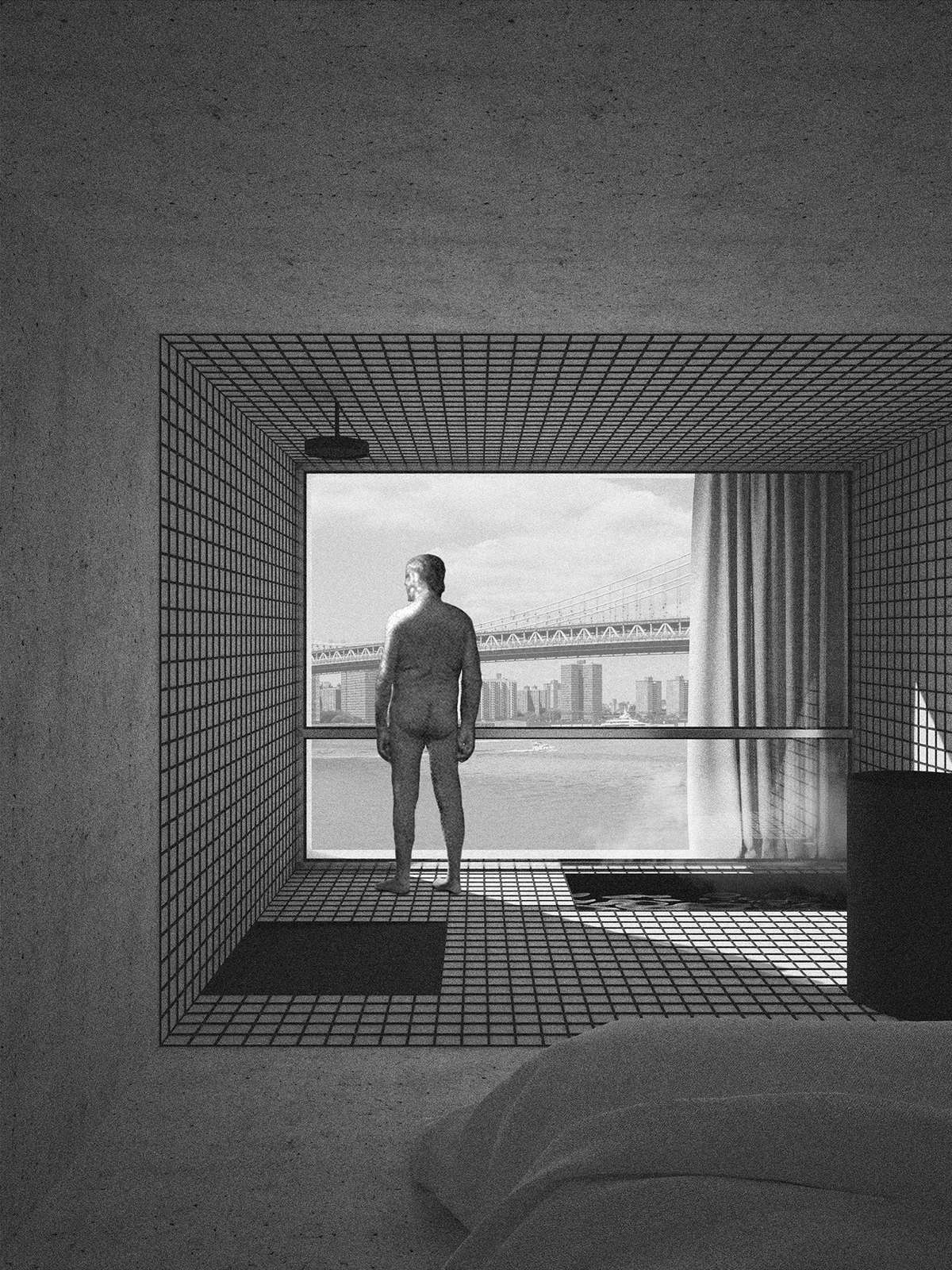
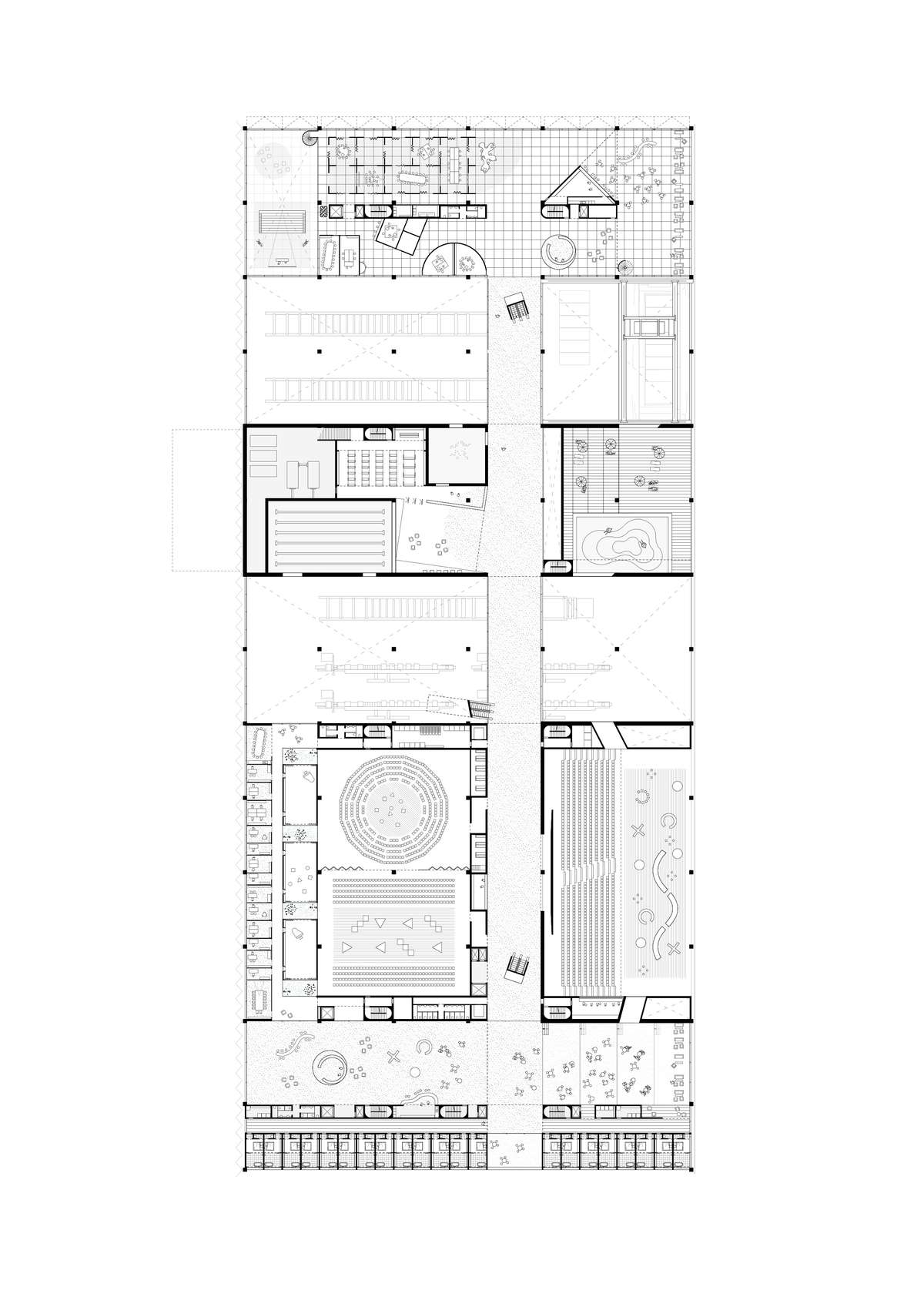
Paper recycling plant, plan 2nd level
Tales of Trash
Tales of Trash

- Systemic changes
The project emits the hypothesis, that Manhattan constitutes an urban fabric, which is developed and diverse enough, that it is able to overcome and avoid the export of its waste by integrating its treatment in its proper urban fabric.
The project is developed in three entities, three buildings becoming different recycling sites deeply integrated in Manhattan’s urban fabric. The choice of three relies on the three most produced garbage types, which are the non recyclable waste, plastic waste, and paper rejects.
Each type of waste has its proper way of conveyance based on existing structures as the subway or buses in their off-peak hours, leading to a particular recycling site. Each recycling site functions as an urban hybrid, linking recycling programs to public programs in a symbiotic way. The product issued out of the recycling process is immediately consumed or redistributed onsite.
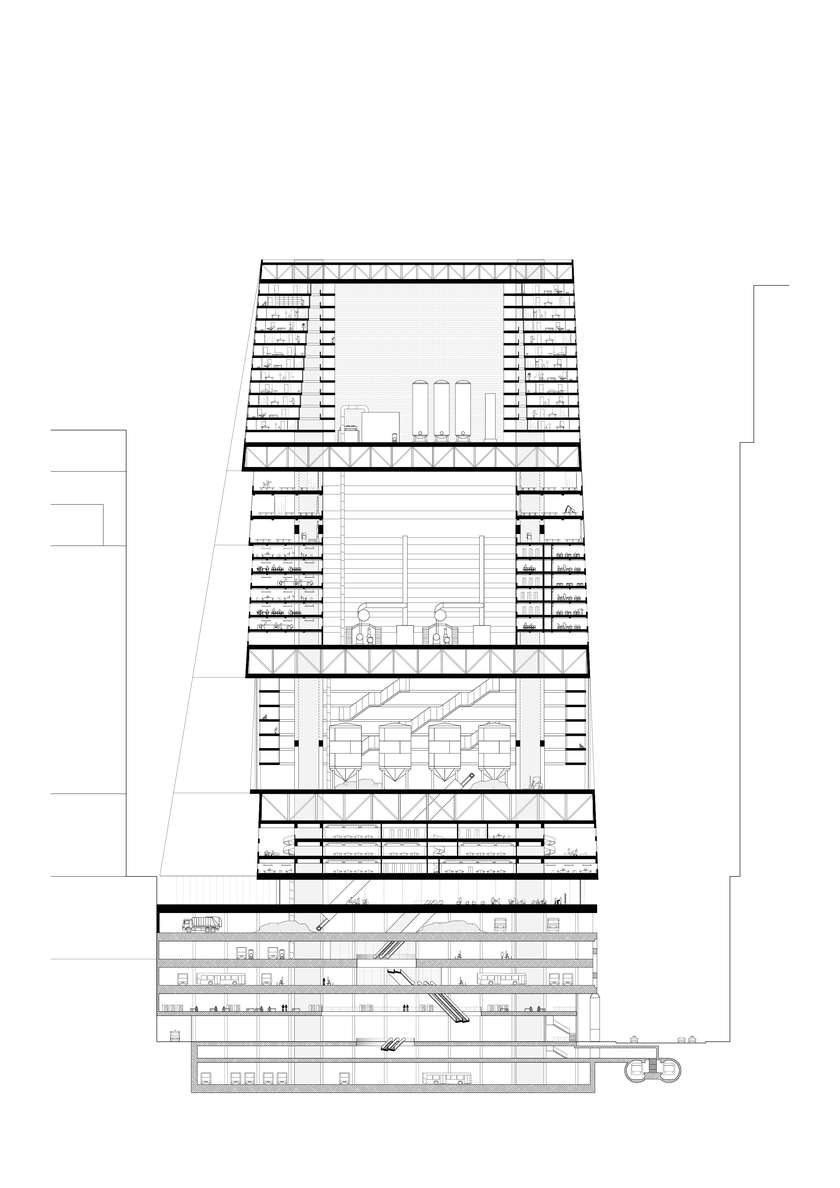
Plastic recycling plant, section
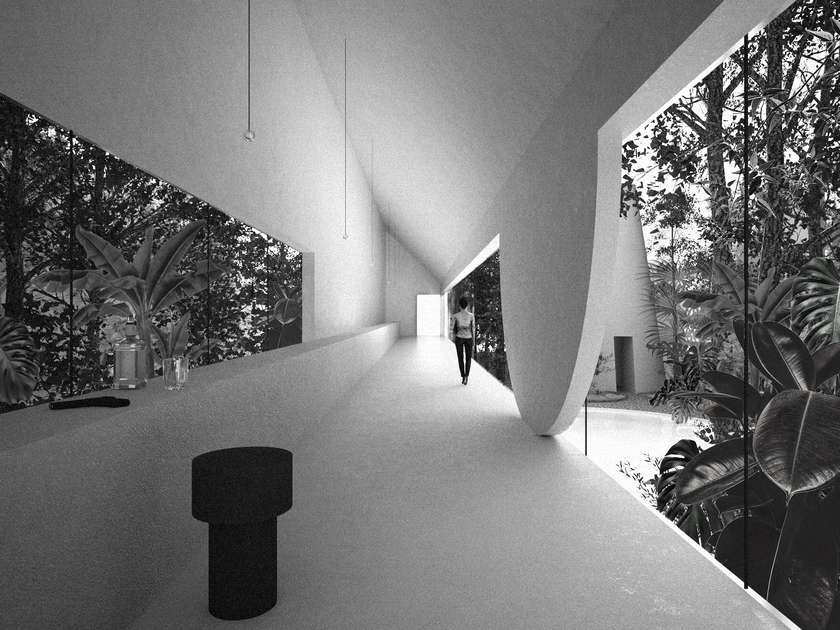
Non Recyclable waste plant, perspective of the from the machine's heat excesses warmed tropical garden
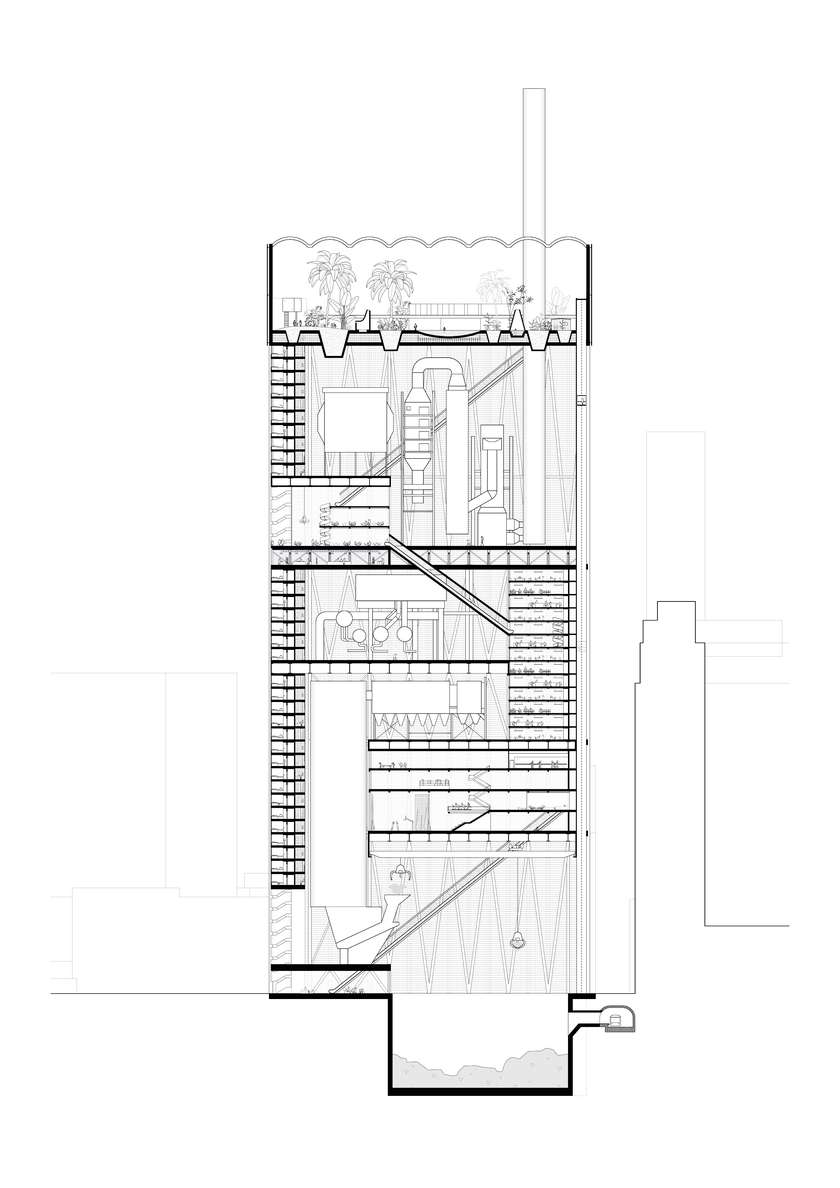
Non Recyclable waste plant, section
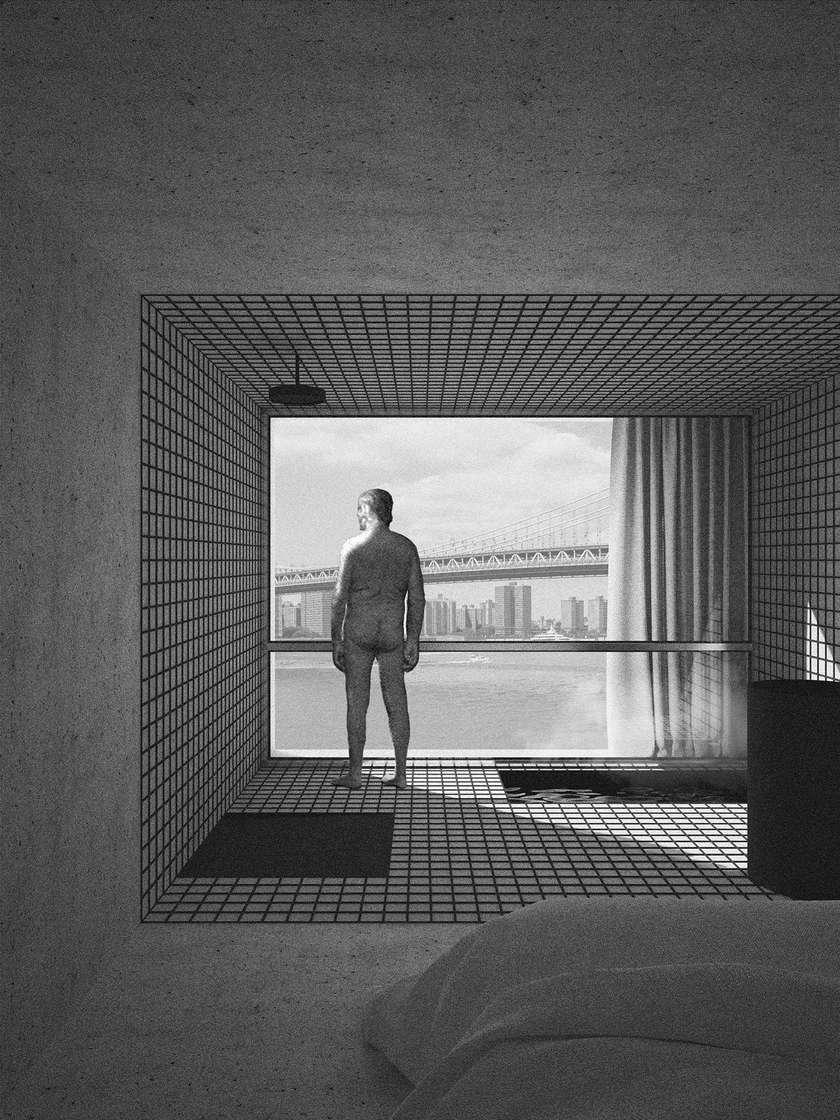
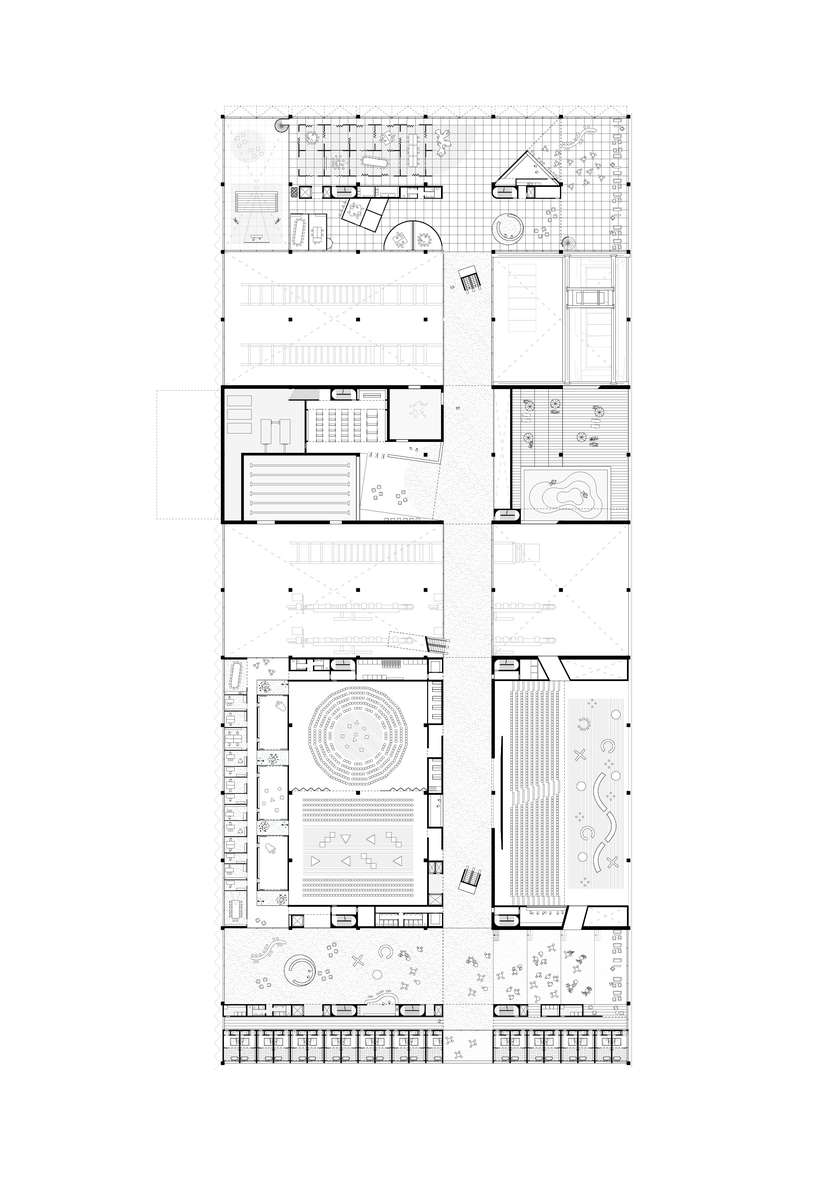
Paper recycling plant, plan 2nd level